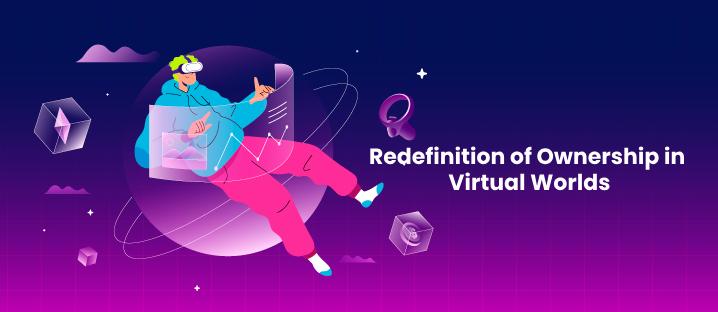In recent years, the concept of the metaverse has gained significant traction, representing a virtual reality space where individuals can interact with one another and digital content in a shared environment. One of the most intriguing aspects of the metaverse is the emergence of non-fungible tokens (NFTs) and their marketplaces. These marketplaces have redefined the notion of ownership, allowing users to buy, sell, and trade unique digital assets within virtual worlds.
In this blog post, we will explore how marketplaces for metaverse NFTs are revolutionizing ownership and creating new opportunities within virtual worlds.
The Metaverse and NFTs:
The metaverse, often compared to the immersive virtual reality depicted in movies like "Ready Player One," offers a digital realm where users can engage in various activities, create content, and even own virtual assets. Non-fungible tokens, built on blockchain technology, enable the creation and verification of unique digital items. Each NFT possesses distinct properties, making it one-of-a-kind and irreplaceable. This uniqueness is at the core of the metaverse NFT marketplaces.
Marketplaces for Metaverse NFTs:
Metaverse NFT marketplaces act as digital platforms where users can buy, sell, and trade their virtual assets. These marketplaces connect creators, collectors, and enthusiasts, facilitating the exchange of NFTs representing digital art, virtual real estate, avatars, wearables, and more. Notable examples include Decentraland's Marketplace, CryptoVoxels, Somnium Space, and The Sandbox Marketplace.
Redefinition of Ownership:
Marketplaces for metaverse NFTs redefine the concept of ownership in virtual worlds by providing a secure and transparent environment for trading digital assets. Unlike traditional online gaming or virtual platforms where ownership is often limited to in-game items, metaverse NFTs grant true ownership to users. Through blockchain technology, NFTs ensure provable scarcity, authenticity, and transferability of digital assets, granting users complete control over their purchases.
Empowering Creators and Artists:
Metaverse NFT marketplaces offer a unique opportunity for creators and artists to monetize their digital creations. Artists can tokenize their artwork, turning them into NFTs and selling them directly to collectors. This direct peer-to-peer model eliminates intermediaries and enables artists to receive a fair share of the revenue generated from their creations. It provides a new revenue stream and empowers artists to showcase their talent to a global audience.
Virtual Real Estate and Personalization:
Another fascinating aspect of metaverse NFT marketplaces is the trade of virtual real estate. Users can purchase parcels of virtual land and develop them as they desire, creating unique virtual environments and experiences. NFTs representing virtual real estate can appreciate in value based on demand and development. Moreover, users can personalize their avatars and wearables, expressing their individuality within the metaverse.
Economic Opportunities and Virtual Commerce:
The metaverse NFT marketplaces are not only transforming ownership but also creating economic opportunities within virtual worlds. Users can leverage their digital assets to engage in virtual commerce, opening virtual stores, and selling virtual goods and services. From virtual fashion and accessories to virtual event tickets and virtual experiences, the possibilities for entrepreneurship within the metaverse are vast.
Challenges and Future Outlook:
While marketplaces for metaverse NFTs present exciting opportunities, challenges persist. Scalability, interoperability between different metaverses, and ensuring user protection are some of the hurdles that need to be addressed. However, as technology continues to advance and user adoption grows, the future of metaverse NFT marketplaces looks promising. It has the potential to revolutionize the way we perceive and interact with virtual worlds.
Conclusion
Marketplaces for metaverse NFTs are reshaping ownership in virtual worlds by providing a transparent and secure environment for trading digital assets. They empower creators, offer economic opportunities, and allow users to personalize their virtual experiences. As the metaverse continues to evolve, these marketplaces will play a crucial role in shaping the future of virtual ownership. It's an exciting time for the metaverse and the potential it holds for the intersection of digital assets and virtual realities. If you want to know more about Metaverse NFT Marketplace development, we recommend Clarisco Solutions, a leading Metaverse development company.
